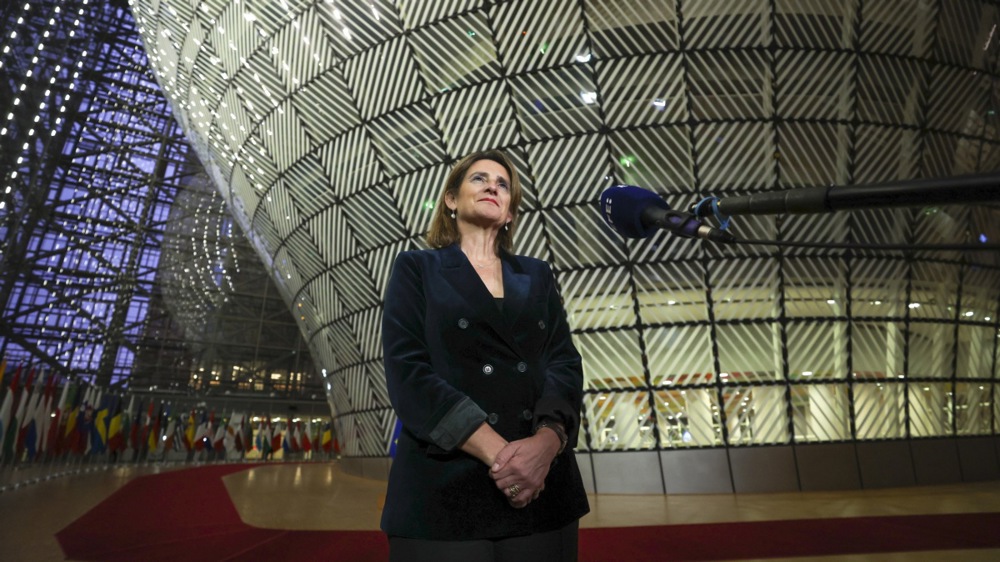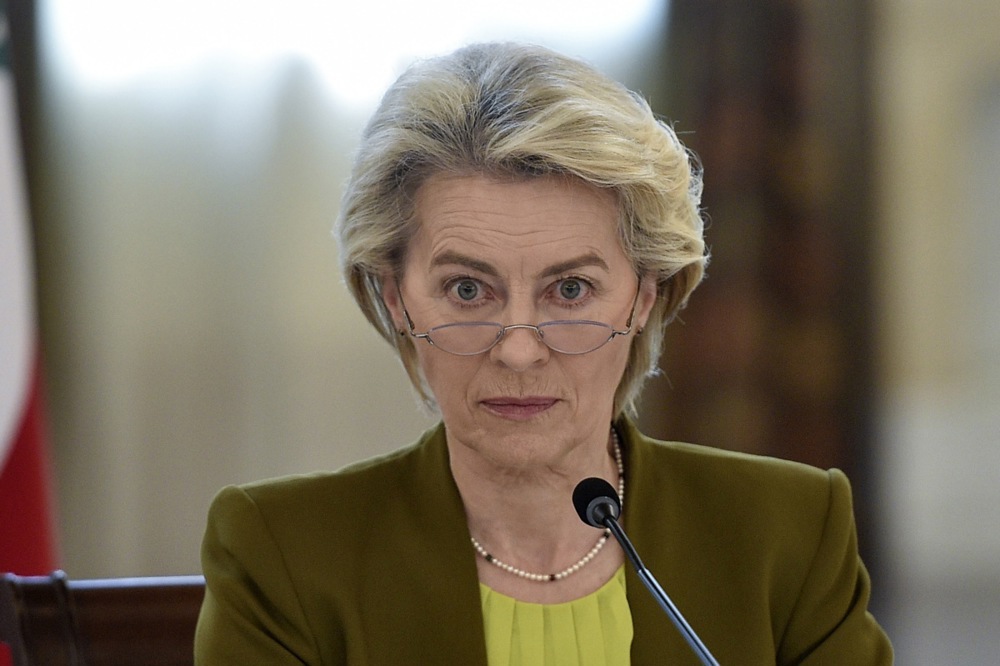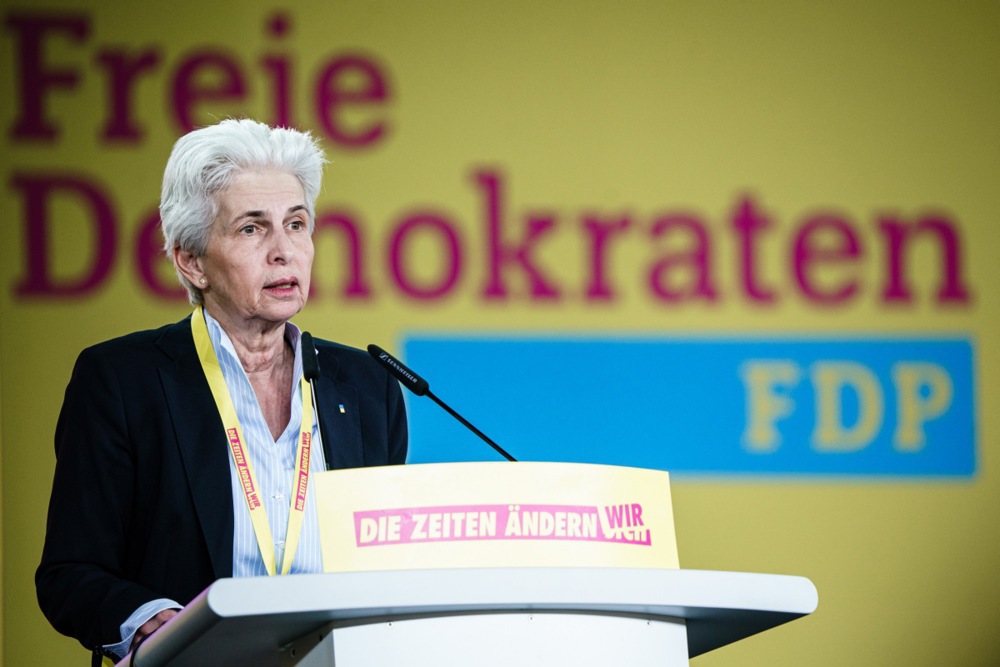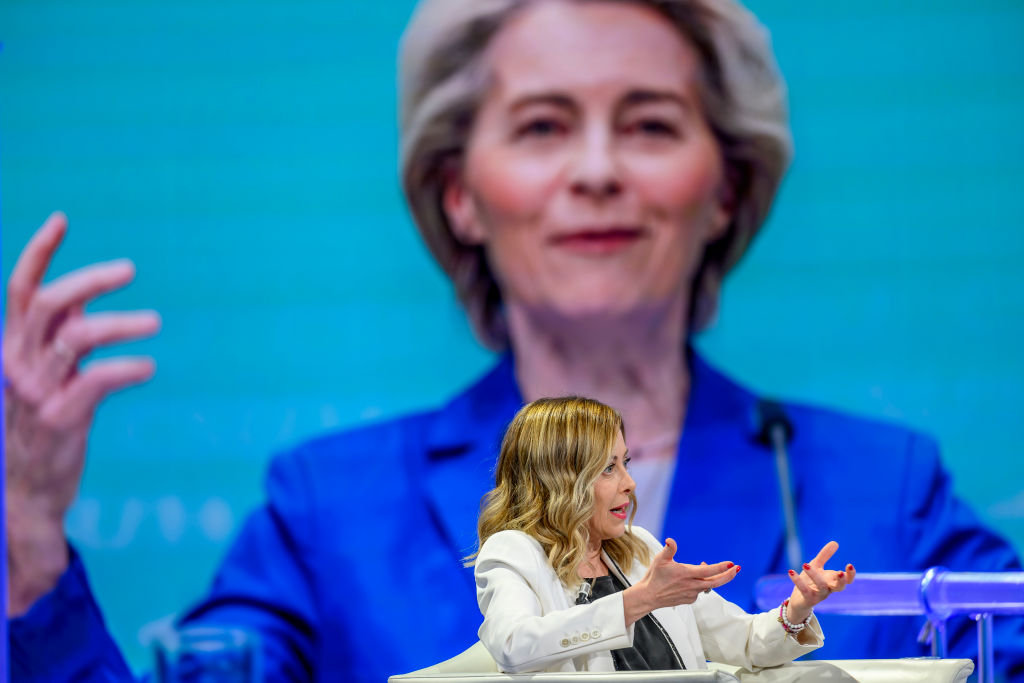European Commission President Ursula von der Leyen has ruled in a way her critics call “presidential.” In some issues even Josep Borrell, the EU foreign policy chief, has said she has acted “without representing anyone but herself.”
Yet she intends to go on. The European Parliament elections are just days away and von der Leyen is standing for re-election by the European Council and European Parliament for a second term as European Commission chief.
She is facing trouble. The Left will not forgive her for being part of the European People’s Party (EPP), despite the fact that it and the Socialists and Democrats (S&D) vote the same way in the parliament almost all the time.
Nor will the Right forgive her, because over the past five years von der Leyen has seemed to be more aligned with the Left, implementing – and even extending – their demands. The Green Deal is a clear example.
Although she is an experienced candidate and has for five years worked and lived at the Berlaymont headquarters in Brussels (she has an apartment next to her office), the former German minister has suffered eight major mistakes that will not be forgotten.
1. Covid-19 pandemic management
Despite the growing and centralised power of Brussels in day-to-day matters, von der Leyen was unable to lead a joint European Union response to the Covid crisis.

In addition, dealings with the major pharmaceutical companies turned into a scandal, Not even MEPs were able to establish exactly what had been agreed. The images of European parliamentarians such as Christian Terhes brandishing a contract riddled with blacked-out passages will not be forgotten.
More, the scandal known as “Pfizergate” has not yet been resolved. The case concerns the disclosure of calls and text messages exchanged between von der Leyen and Pfizer’s CEO Albert Bourla in negotiating vaccine contracts. Several other people are said to be involved.
2. Economic crisis
The economic consequences of Covid for the EU have been disastrous. In fact, several countries have been unable to recover to pre-Covid production levels.
Just a few months ago, there were still four Organisation for Economic Co-operation and Development (OECD) countries that had still not reached the earlier production levels. All of them were European, including the UK, and three part of the EU: Spain, Germany, the Czech Republic.
Hundreds of millions of euros have been invested in reconstruction projects but the benefits for ordinary citizens remain to be felt. Public indebtedness in the EU exceeds 80 per cent, according to Eurostat data.
3. Climate change
Part of the slowdown in the recovery is seen by many as being due to “green” policies that handicap European industry.
Commission objectives remain to achieve zero emissions in industry by 2050 although, for now, the most affected sector is agriculture, with measures that condemn farmers to drastic reductions in production.

Last February, Agriculture Commissioner Janusz Wojciechowski acknowledged that the objectives for farm workers would be lowered. But the damage had already been done, and it has become more difficult to compete with countries outside the EU.
Imports from nations such as Morocco are beginning to flood European markets thanks to free-trade agreements. Competition is seen as unfair because they are not required to meet the same phytosanitary conditions as European products. That is one of the reasons why farmers’ demonstrations have been taking place across the continent.
4. Internal cohesion
Under the “rule of law” concept, Brussels has pursued parties and countries it considers are acting outside its regulations.
Where some cases have been justified, a perceived failure to apply the same measures to all countries has demonstrated to many that there is hypocrisy in the application of the rule of law in the EU.
Among the notorious cases is that of Poland under the Government of Prime Minister Donald Tusk elected in 2023. Von der Leyen ceased all investigations shortly after he came to power, yet the Tusk government had made no notable changes. The previous Conservative PiS administration, though, was put under great pressure.
Hungary is under similar pressure.
Spain under the current Socialist Government led by Prime Minister Pedro Sánchez, is regarded by some on the Right as having violated the national Constitution and European laws. Yet there has been no response from the Commission after Spain’s Parliament gave final approval on May 30 for an amnesty law that exonerates Catalan separatists from any responsibility for their declaration of independence in 2017.
This apparent randomness in implementing policy is creating an internal rift that will be difficult to repair.
5. EU relevance in the world
Brussels has lost power and influence in international relations in recent years due to several factors.
Among them is direct competition with the US. The value of the euro has dropped and is now closer to that of the dollar.
Alongside that is the rise of China, whose economy has overtaken that of the EU and is on track to catch the US by 2050. The EU wants to carve out a niche for itself between the two powers. But the EU is hardly able to negotiate conditions with a Beijing that looks on the weakening EU with disdain.

Additionally, deindustrialisation in Europe is reducing competition, as is the rocketing cost of energy as a result of the war in Ukraine.
All this makes it increasingly difficult for Europe to increase or even maintain its economic weight in the world.
6. Immigration
Mass immigration continues to be a problem and the Commission is struggling to contain the flow of arrivals, despite agreements with countries of origin.
Von der Leyen’s solution after the Italian island of Lampedusa was overwhelmed with immigrants last year was not to strengthen the EU border force Frontex’s mission. Rather, she just encouraged Member States to open more legal channels for legal migration.
The new EU Asylum and Migration Treaty provides more funding and tools to Member States to do so. Yet it has generated internal tension over the so-called “refugee quota” it imposes on all EU countries.
At no time was there any Commission talk of reducing the influx of immigrants. In fact, the Commissioner for Home Affairs Ylva Johansson went so far as to say that Europe needs at least “one million immigrants per year.”
7. Ukraine war
Some critics say that decisions taken by von der Leyen have apparently had little to do with European interests.
Sanctions against Russia are not producing the desired effects. Instead there is a negative impact affecting European countries.

Energy, fuel and food prices have soared since the beginning of the war. The latter have risen by more than 20 per cent. Inflation has not abated and the cost of living has risen in all Member States.
8. Hasty enlargement
Shortly after the war in Ukraine began, the Commission decided to bypass all procedures and expedite the inclusion of up to nine countries into the bloc, including the Western Balkans and Ukraine.
Almost none of the candidate countries pass Commission requirements, not least Ukraine in the middle of a war.
In fact, Kyiv’s possible inclusion is the most worrying, as the accession process has never been initiated with a candidate immersed in an all-out war.
Critical voices within the Commission are concerned about the possible consequences of such a forced expansion given the disruption it would likely cause to the internal market, with quotas that are already causing difficulties among the 27 current Member States.





